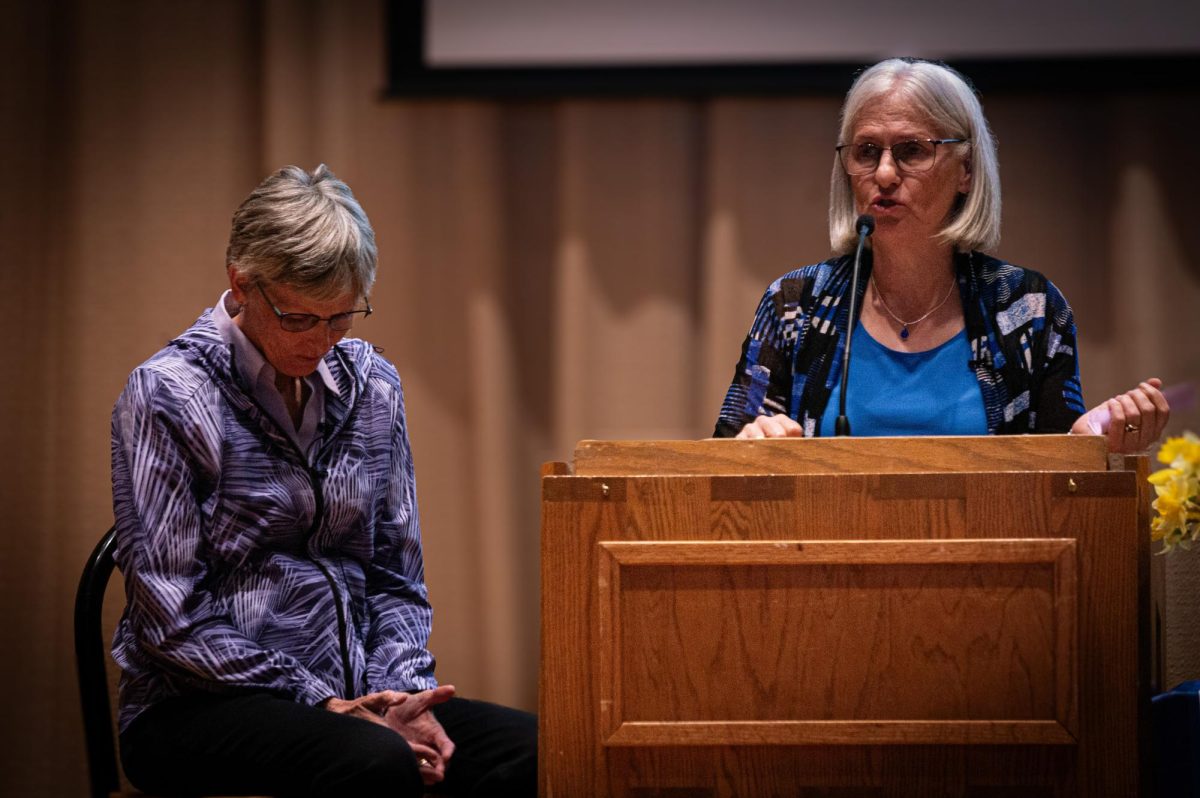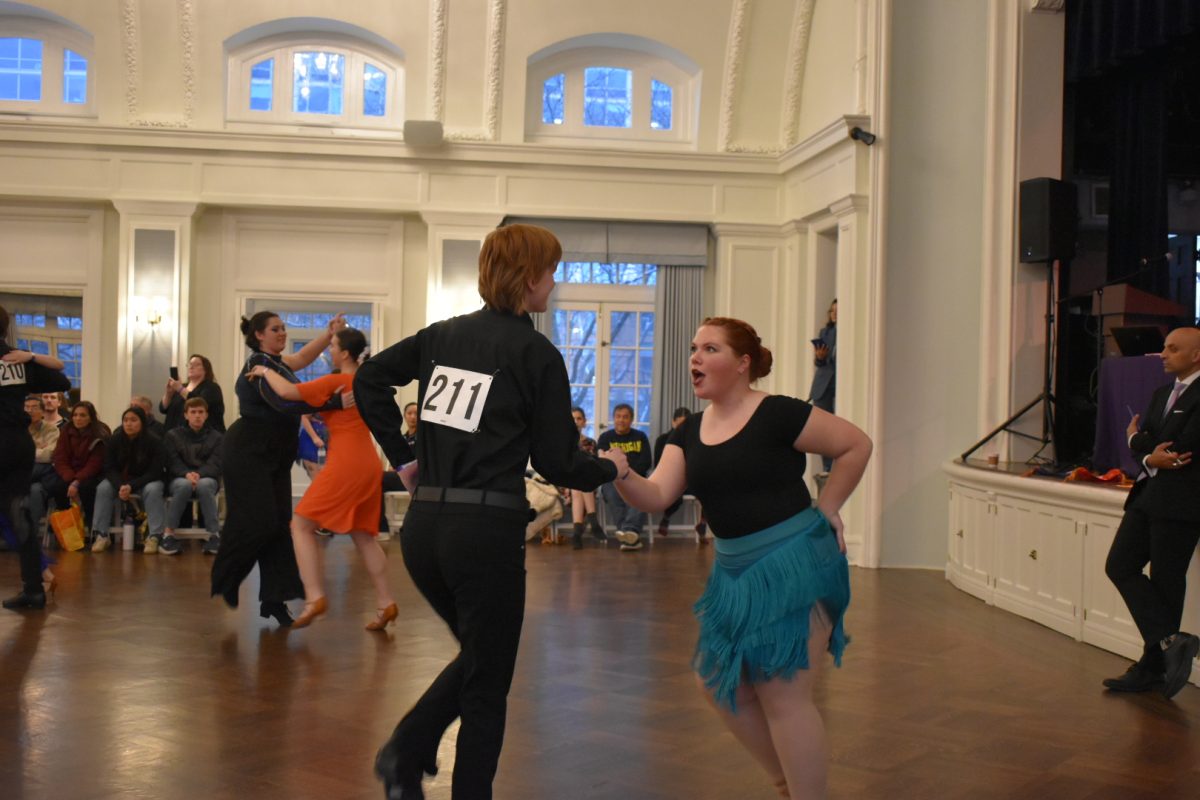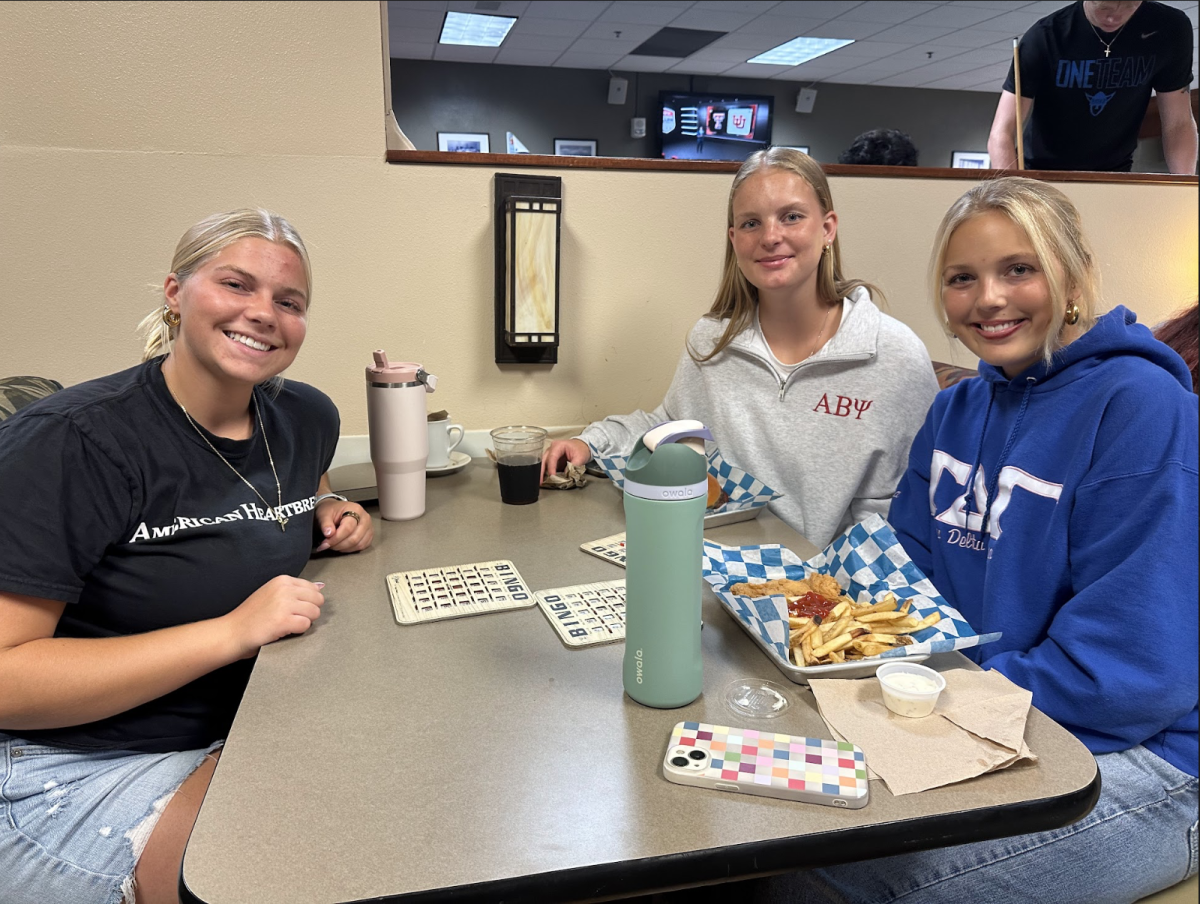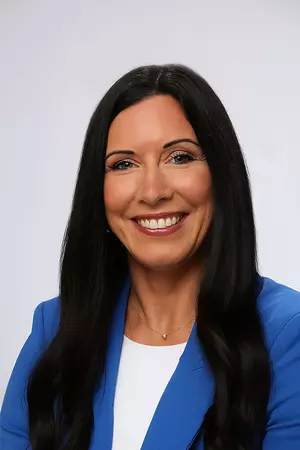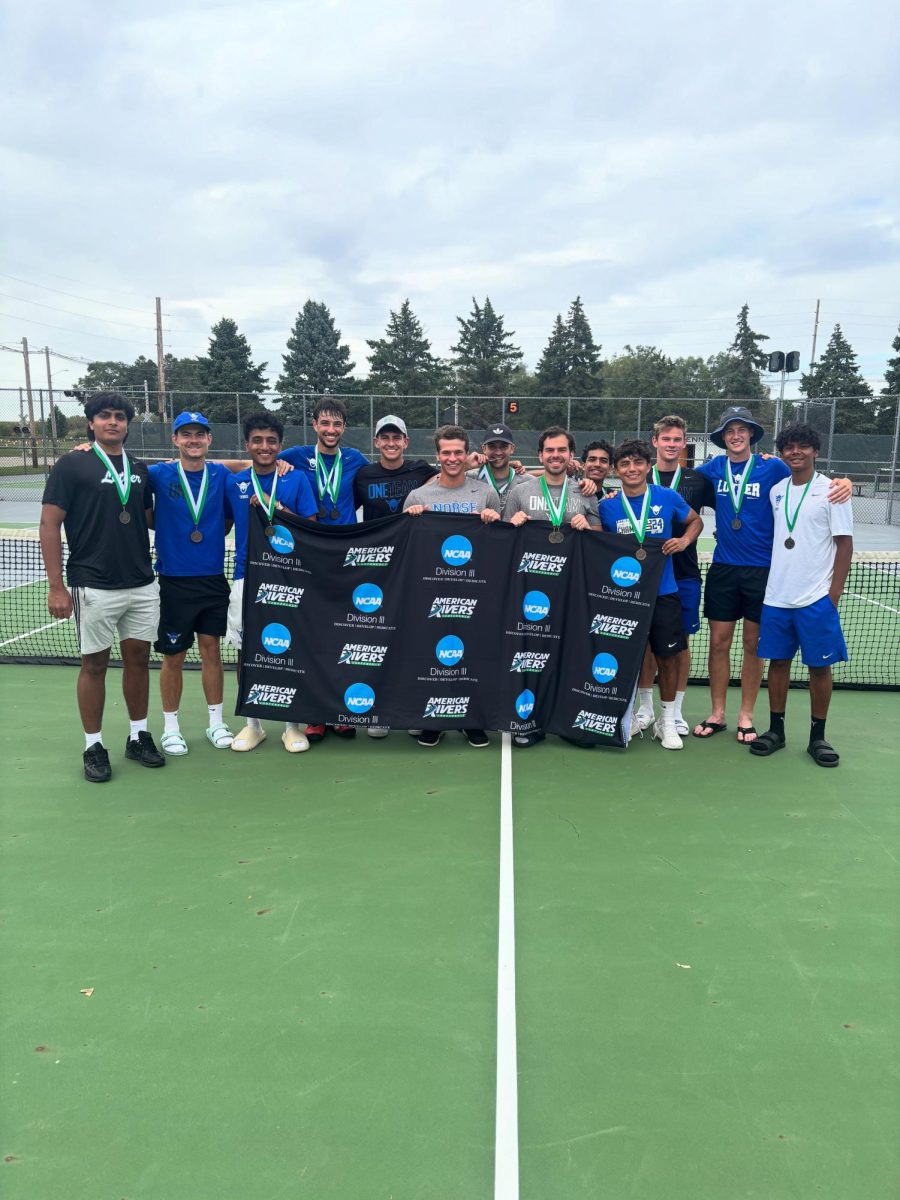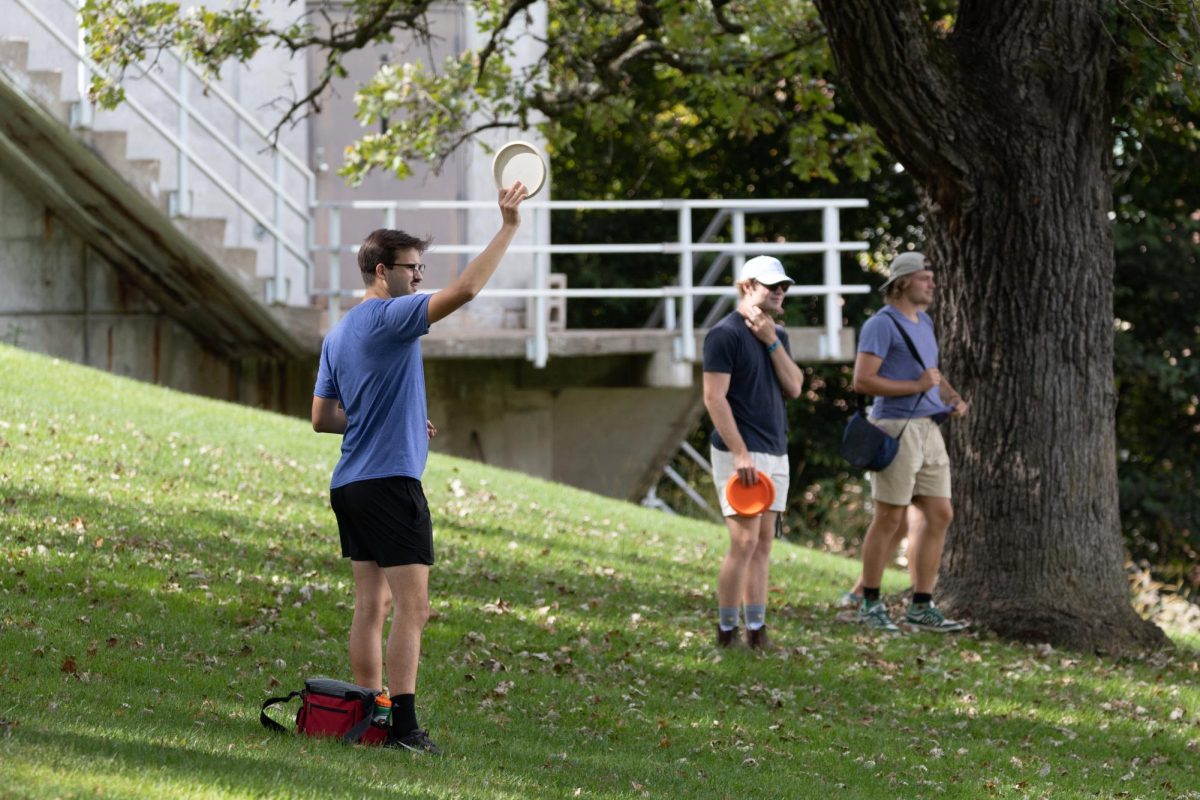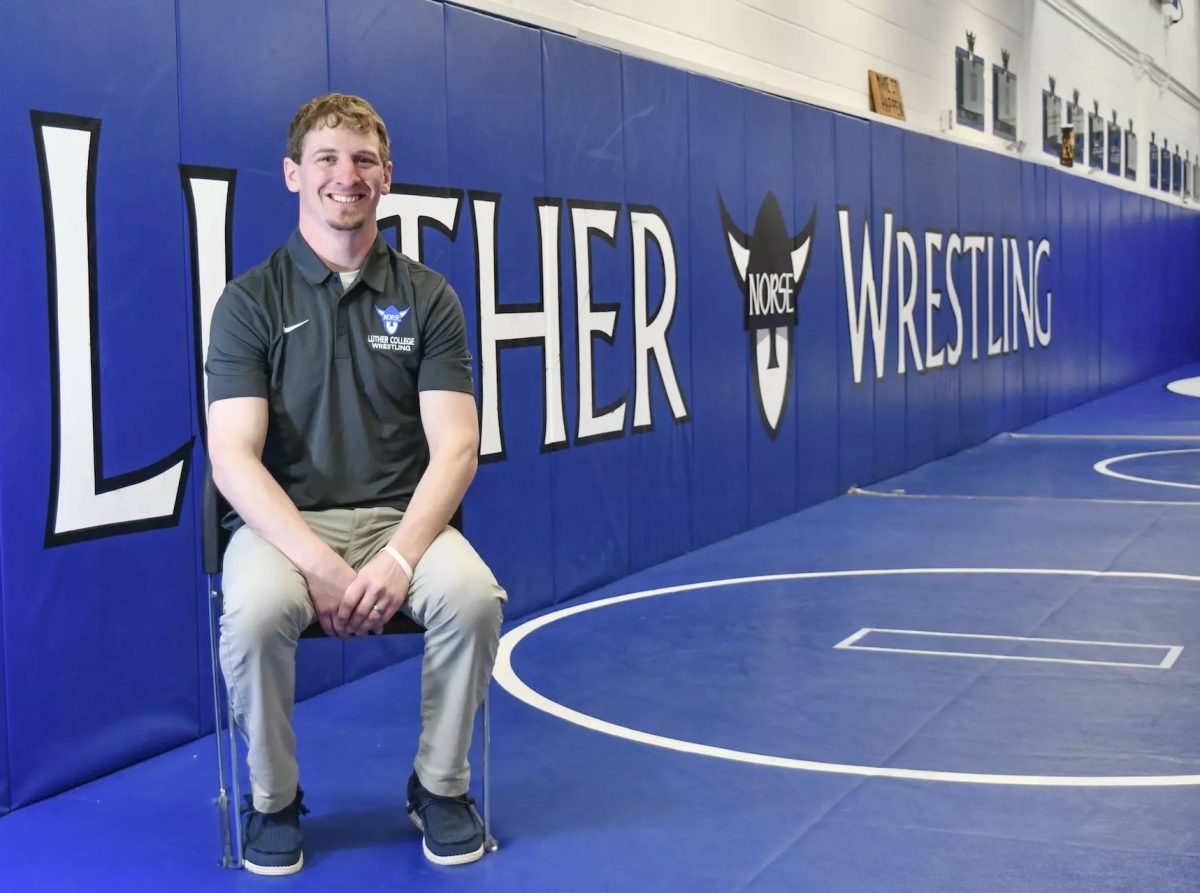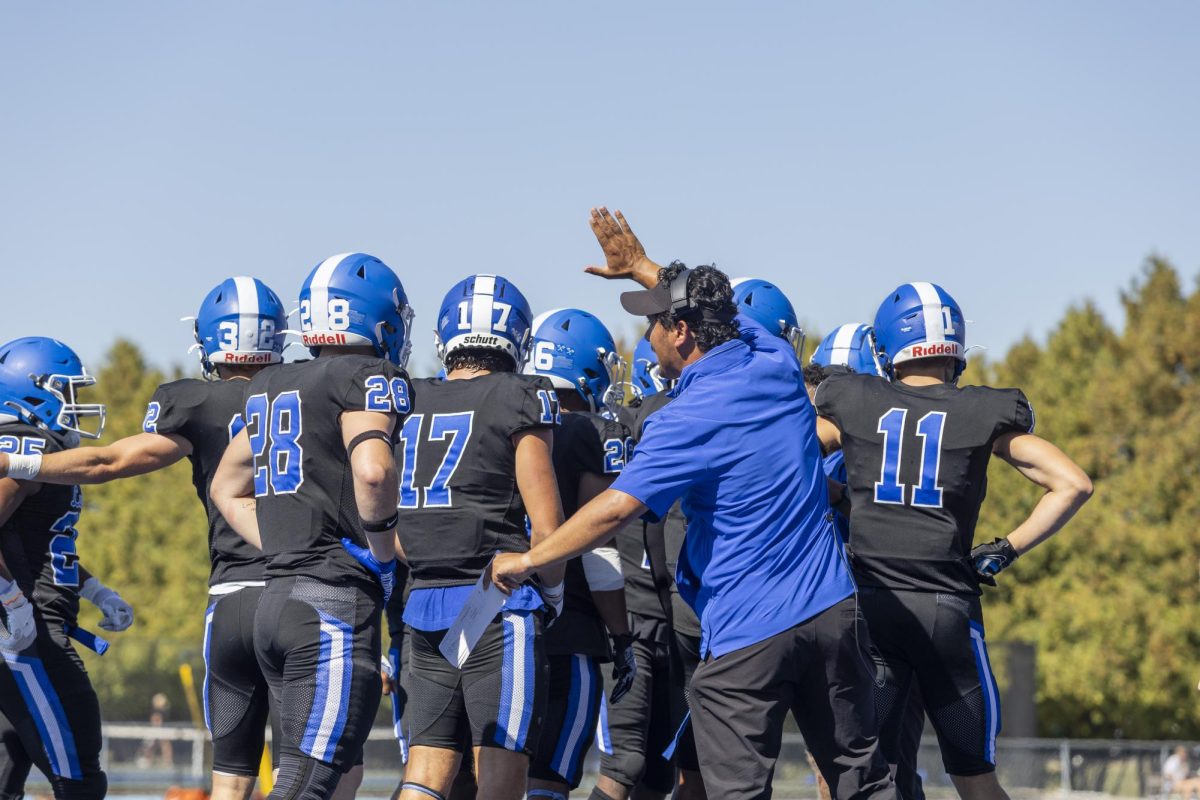Did you know how involved Luther Alums were in the fight for women’s sports equality? Attendees at “Break Point: How a Norse Alum Led the Fight to Open High School Athletics to Women” got to hear from two alumnae — one who broke gender barriers and another who documented the story.
Speaking in the Center for Faith and Life (CFL) Recital Hall on April 11, author Sheri Brenden (‘81) shared her book “Break Point: Two Minnesota Athletes and the Road to Title IX,” in which she details the journey of her sister Peg Brenden (‘76) and another Minnesota athlete, Toni St. Pierre as they attempted to play sports on boys’ teams. The book was originally published in 2022.
“I began writing this book more than 10 years ago, frustrated that women athletes in general were not acknowledged and recognized, and in particular that the history of girls and women in sport is ignored and overlooked,” Sheri Brenden said.
At the event, both Brenden sisters talked about parts of the book, including Peg’s time playing sports with boys, Sheri’s motivations for writing the book, and the importance of the 1972 ruling that allowed Peg and Toni to compete on boys’ teams at their respective high schools.
“I knew that my sister had accomplished something significant, both as an individual and on behalf of high school girls all over the country,” Sheri Brenden said. “I wanted people to understand that her chapter in sports history is about more than scores or records. It is about equal opportunity, about girls claiming their passion for sport, about society opening doors previously locked.”
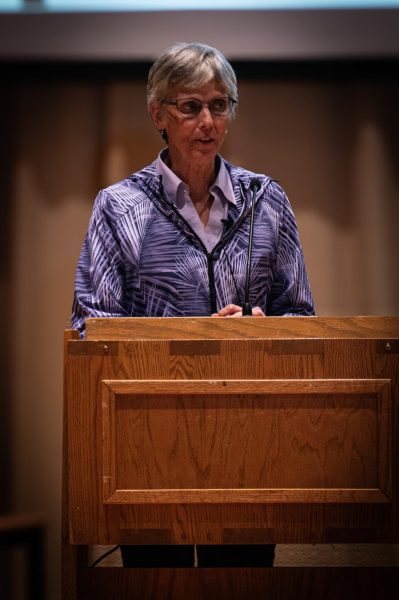
Peg was an accomplished tennis player during her time at Luther and is in the college’s Athletics Hall of Fame. But “Break Point” begins in in 1972 where there were no high school teams for girls in Minnesota. Peg had previously been playing sports with boys since she was little, but was left out from sports starting in fifth grade. She was eventually permitted to practice with the boys’ tennis team at St. Cloud Technical High School during her junior year, but only when they needed more players.
“Playing with boys in elementary school introduced me to sports very early in my life. They helped me to develop skills that my girl friends did not have and were not interested in developing,” Peg said. “That head start in athletics, thanks to my little boy buddies, led to grown-ups in my life taking notice of how well I played, which in turn built my confidence. So, playing with boys early on in my life was definitely important in my athletic development.”
This was a step forward, but Peg wanted to play, so her senior year she filed a letter of discrimination. On May 1, 1972, Peg won her case and was allowed to play in five matches her senior year. She still remembers the feeling of playing in her first matches.
“Excitement [and] fear,” Peg Brenden said. “I was definitely excited to test my skills in real matches that mattered. But, I also recognized that every match I played was likely seen as a bigger test—a test of what girls could and/or should be able to do when it came to sports.”
Sheri shared that she hopes “Break Point” will prompt people to think about the barriers that girls and women had to overcome, and still must confront as athletes. She also pointed out that despite recent growth in women’s sports participation women are still drastically underrepresented in the sports industry, in places like coaching, refereeing, administration, and media.
“Our sports traditions and institutions were built with boys and men in mind,” Sheri Brenden said. “I want to open the sports section of my newspaper or watch the evening news and hear about local volleyball players or softball teams as well as the NCAA champions and Olympic gold medal winners. Most of all, I want more girls and women to participate in sports, and to feel the strength, confidence, and community that athletic experience can yield.”
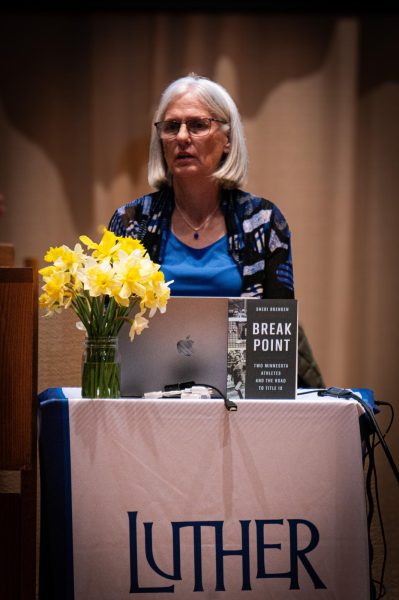
Luther women’s tennis player Abby Ostermann (‘26) attended the event along with five of her teammates. She thought the topic of “Break Point” was interesting, and enjoyed seeing two Luther tennis alums give the presentation. Her biggest takeaway from the night was how “lucky” female athletes are because of
“How strong [Peg Brenden and Toni St. Pierre] were in their effort to be able to play sports and how they paved the way for everyone,” Ostermann said. “I realized how lucky I am to be able to play sports and far things have come, but yet how much work we still have to do,”
All Peg wanted to do was play the sport she loved, but she was told time and time again that she wasn’t good enough. When looking back through the transcripts of the case, she talks about the feelings that come up.
“Reading transcript excerpts that, in essence, dismissed girls’ athletic skills and ambitions made my blood boil,” Peg Brenden said. “But, reading those excerpts now makes me smile. They seem almost comical 50 years later.”

